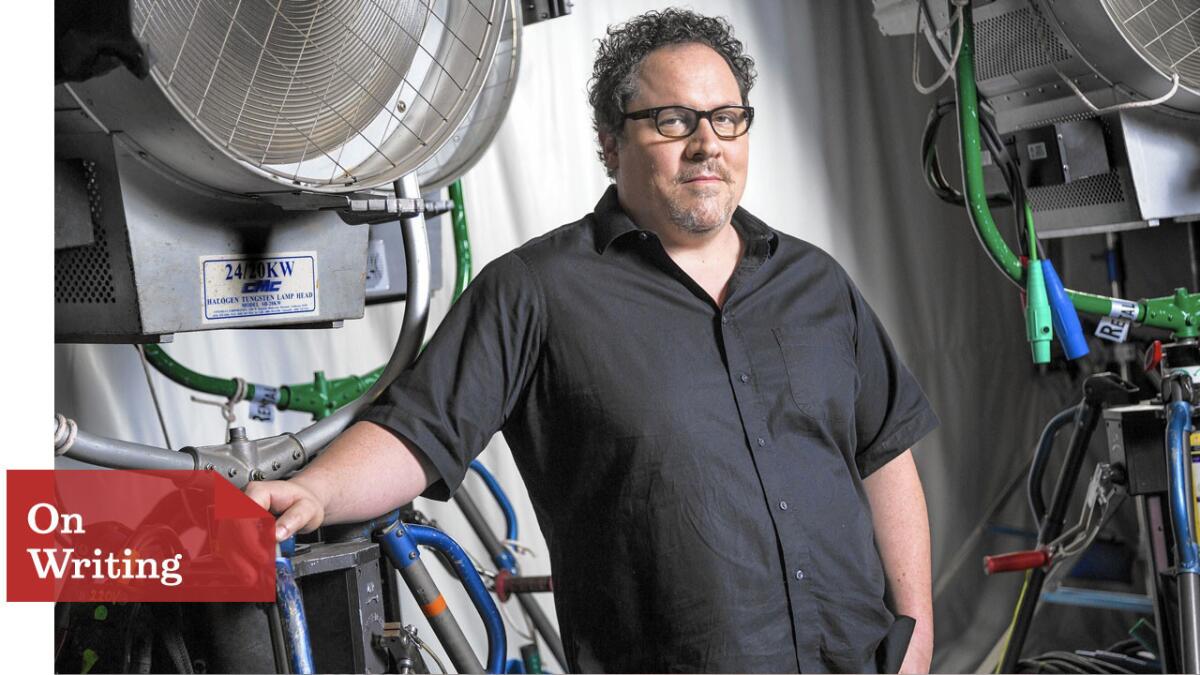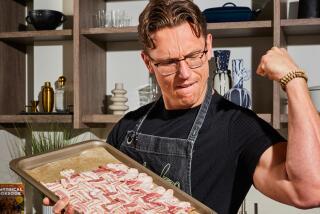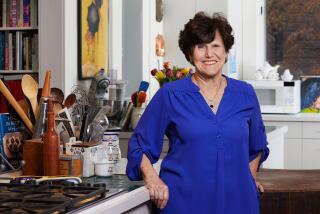The Envelope: Jon Favreau painstakingly gathered ingredients for his ‘Chef’ script

For the first time in a long time, I wanted to write a story without knowing how it was going to end. This is a tremendous luxury. Creative freedom is something that we all start with but is often lost in the transition from aspirant to professional.
I hadn’t written a spec like this in over a decade. My recent obsession with chef culture connected with a story I was kicking around about fatherhood and divorce and recapturing creative passion. I began to outline “Chef.”
I began to scribble images and scene descriptions and settings and characters. I wrote song names and menu items, described tattoos and even specific knives to be used. In about a half hour, I filled eight pages. It wasn’t enough to pitch, but then again I didn’t have to. It was enough to start writing.
I can’t express the excitement you feel when words start to rush out. Your brain does what it does. Your job is to feed it. I watched every food movie that I could. I watched every documentary and read every chef’s memoir I could get my hands on. I would fall asleep at night listening to “Bourdain’s Kitchen Confidential” to let it permeate my subconscious. It was, after all, the book that first piqued my interest in the culinary world years ago.
After completing the first draft, I knew I needed a trustworthy advisor to help me shore up the authenticity of the piece. I sought out chef Roy Choi of Kogi food truck fame.
Our first meeting consisted of me riding with him as he hit up all his restaurants like a mob boss collecting from all his operations. Instead of picking up envelopes, however, Roy was there to dispense guidance and encouragement. He is a Korean American but spoke mostly Spanish in the kitchen. As I shadowed him, he explained how and why he did everything. He had me taste the mise and sample the dishes that the line fired for him. I began to see the world through his eyes.
Finally, after six hours of driving, watching and eating some of the best food I had ever tasted, we talked. He had read the script. Things were wrong with it, but the story was solid. He impressed upon me how important it was for me to get the world right. Hollywood got it wrong most of the time. Chefs didn’t appreciate that. If I promised to get it right, he told me he would do whatever it took to help.
Over the next several months, under Roy’s guidance, I was off to the culinary school for intensive training, after which I was finally allowed into Roy’s kitchen. At first I served as a prep cook doing meticulous and painstaking work of preparing ingredients of the mise en place [setting up all the ingredients for the night’s menu]. I eventually worked my way up to line cook during dinner rush at Roy’s various restaurants. I distinctly remember being handed some ice water in a quart deli container by a busboy mid-shift. I didn’t even know I was thirsty, but that water was the best thing I ever tasted. When I remarked to Roy what happened after closing in the parking lot, he said I was ready to make the movie. That I got it.
We filmed the movie in less than a month. We got lucky with the weather and even luckier with casting. Everyone worked for a fraction of what they normally earn, but it was fast and fun. The editing process was relatively short, and the theatrical run was the longest I can remember having. There wasn’t one billboard, but somehow the theaters remained full. Somehow the most personal film I had ever made connected with others in a personal way.
Most important, I felt renewed. The experience of the chef in the story soldiering through a midlife crisis of sorts by dedicating himself to that which inspires, forgoing the comfort of pattern and safety, was mirrored by my own journey. The film was my food truck, where I controlled the menu and the script was the sandwich. And, like cooking, the real joy came from making something I was proud of and then watching others enjoy.
More to Read
From the Oscars to the Emmys.
Get the Envelope newsletter for exclusive awards season coverage, behind-the-scenes stories from the Envelope podcast and columnist Glenn Whipp’s must-read analysis.
You may occasionally receive promotional content from the Los Angeles Times.






